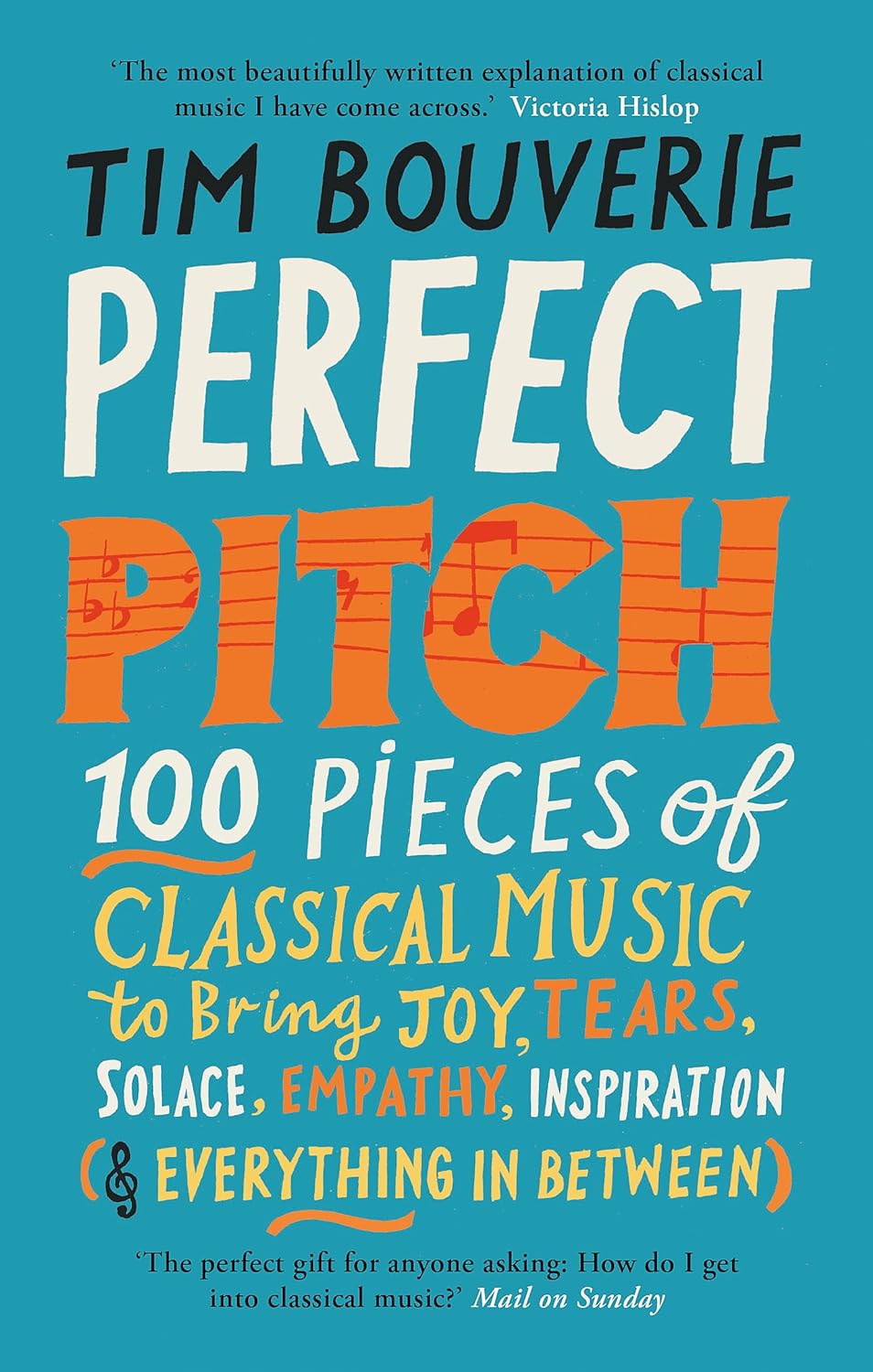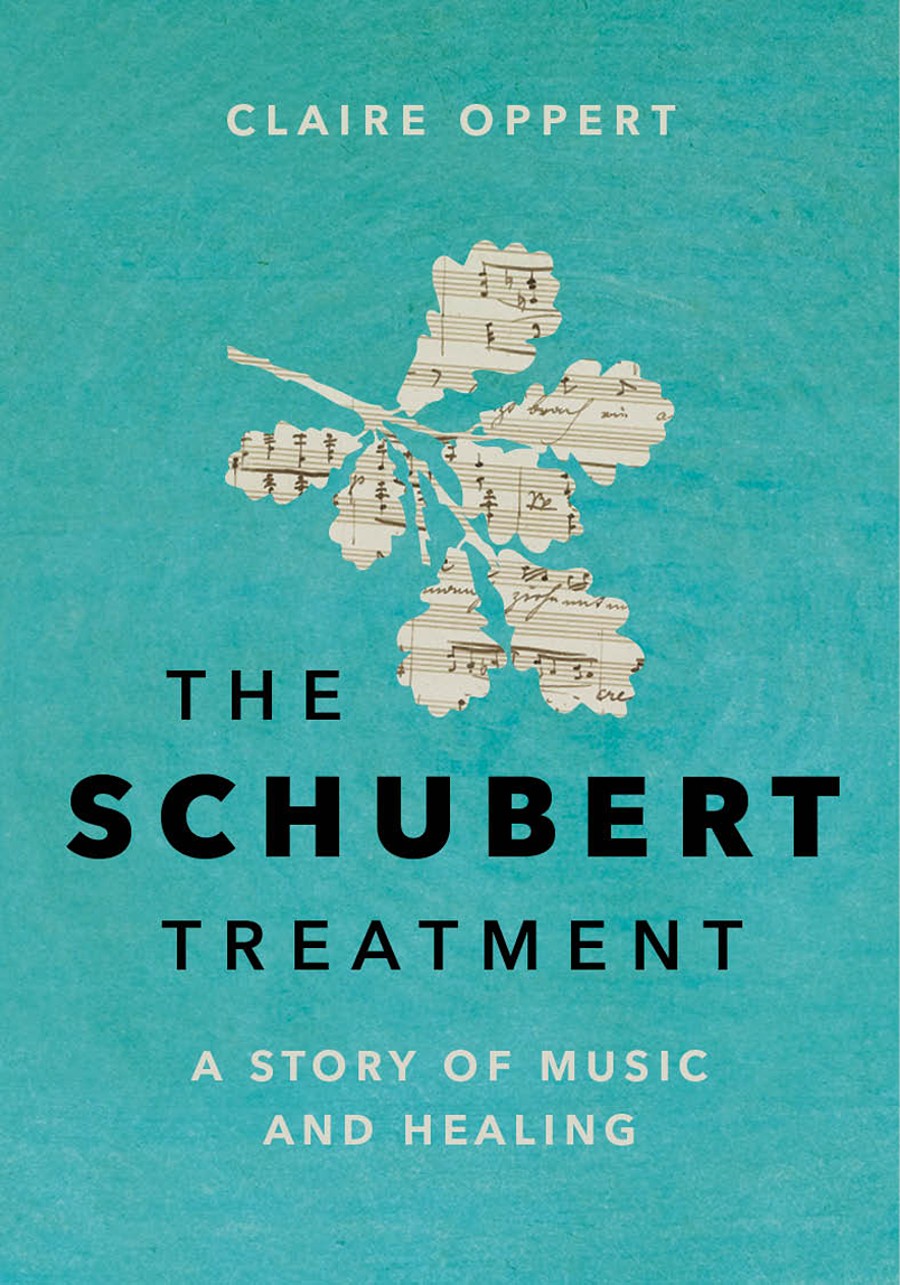
Classical music has charmed listeners for centuries, but its magic goes far beyond the concert hall. Science and personal stories both show that these timeless sounds can lighten our mood, steady a racing heart, and help us find calm when life feels uncertain.
Perfect Pitch offers a book of 100 classical masterpieces to listen to, all intended to comfort and inspire. You’ll find a short introduction to each piece, plus a recommended recording.
From easing pain in hospital wards to supporting deeper sleep at home, classical music makes a gentle companion for anyone seeking a boost in daily wellbeing. Let’s take a closer look at the many ways classical music helps us heal, both inside and out.
How Classical Music Improves Mood
Pressing play on a classical track does more than pass the time. It can calm a restless mind, lower your heart rate, and help put annoying worries back in their box. Scientists have taken a real interest in why certain composers, like Mozart and Beethoven, seem to unlock these ‘feel better’ effects.
What’s the trick? It comes down to how music shapes our brains and bodies, sometimes without us even noticing. Here’s what you should know about the science behind those soothing notes—and how to use classical music for a calmer, happier you.
The Mozart Effect and Brain Activity
Researchers first noticed something odd in the early 1990s when students who listened to Mozart’s music performed better on certain puzzles and tests. This boost in brain power earned the name ‘The Mozart Effect’. But there’s more to it than just scoring higher on quizzes; the real power is in how Mozart’s melodies affect your mood and focus.
A recent study from 2021 at the University of Edinburgh found that people who listened to Mozart’s piano sonatas for just 20 minutes felt calmer and could focus better on simple tasks. Their cortisol levels, which rise when you’re stressed, dropped by as much as 15 percent. All this, just from music playing in the room.
Doctors explain it like this: Mozart’s melodies have a steady pace and repeating patterns. This helps the brain line up its natural rhythms with the beat. It’s almost like your nervous system ‘syncs’ with the music, making you feel less jittery and more clear-headed.
So, when you put on Mozart, you’re not just filling the room with pretty sounds. You’re actually giving your mind a gentle nudge into a better mood and sharper focus—with no need for coffee or complicated tricks.
Beethoven’s Power Chords for Mood Lift
Not every moment calls for gentle strings or whispered piano. Sometimes you need a push—a bit of thunder with your calm. Beethoven is famous for bold, dramatic music that grabs your attention and, surprisingly, can shake off tension in the process.
Take the famous opening to Beethoven’s Fifth Symphony or his explosive Seventh Symphony. The loud, powerful sections feel almost physical, as if the music is physically shaking stress loose from your body.
Studies from the University of Helsinki (2020) found that listening to these stronger, louder orchestral moments caused a burst of positive feelings in listeners and helped lower cortisol by roughly 10 percent. People reported feeling more awake and less weighed down by worry after just one movement.
There’s something energising about letting those chords flood the room. It works a bit like exercise for your emotions: pressure builds, then releases as the music shifts from heavy to light. This sense of release helps muscles untangle and the mind reset.
So, if your day feels sluggish or heavy, letting Beethoven ring out can wake the senses and flatten some of the stress trying to build up.
Listening Strategies for Everyday Stress
You don’t need a fancy speaker or music degree to use classical tunes when things get too much. The best part? A few small changes to your day can make classical music easy to fit in, whatever your schedule.
Some simple ways to add a calming playlist:
- 15-minute breaks: Line up a short set of Mozart, Debussy, or Satie for your tea break or wind-down before bed.
- Background at work: Let BBC Radio 3 or Classic FM play softly in the background. The familiar presenters and variety of music make it feel like having a calm friend in the room while you work.
- Short daily playlists: Create a playlist with four to five uplifting tracks for quick mood resets. Try pairing upbeat sections from Beethoven with gentle piano from Chopin.
You don’t need perfect silence to feel the effect. Even playing music softly in the background during tasks can change the mood in the room.
Try this sample playlist for a stress-free break:
The best time to listen is often when you notice your mind starting to race or your shoulders creeping up with tension. Even a short pause with music can help set the tone for the rest of the day.
For many, tuning into a live stream on BBC Radio 3 or Classic FM takes out the guesswork. You can simply press play and let the calming power of classical music do its work, whether you’re washing dishes, taking a walk, or resting before sleep.

The Schubert Treatment is by an artist therapist, who found that playing the cell has profound effects on children with autism, along with patients in pain or distress, even just before death. The book features lyrical vignettes of patients she’s helped.
Doctors and nurses often turn to classical music to help people recover from surgery or manage chronic pain. The music serves as a gentle distraction, taking focus away from discomfort without causing side effects.
There’s good science to back this up: patients who listen to calming music often need less pain relief medicine and report lower pain scores. The healing power comes not just from the notes themselves, but from the way they help the brain release endorphins.
Classical Music for Mental Health
Music can feel like a gentle anchor when daily life gets overwhelming. For many, classical music brings much-needed relief, not just for stress but for deeper challenges like memory loss, anxious thoughts, or low mood.
Health experts now use classical music in therapy sessions across England. The effects can be felt in care homes, clinics, and living rooms, wherever a bit of hope and calm are needed.
Music Therapy for Dementia Patients
Dementia strips away memories and connections, but music often reaches through this fog. Many care homes use simple group listening sessions where residents gather, listen to classical favourites, and sometimes talk about the music.
There’s no pressure to sing or perform—just the act of listening together can open old pathways in the brain.
In these sessions, families are often surprised when loved ones remember fragments of melodies, lyrics, or even names from years ago. Research points to a few key reasons:
- Routine rhythms: Familiar tempos make listeners feel safe and encourage memory retrieval.
- Shared experience: Group settings help spark conversations about the past that might otherwise be lost.
- Emotional connection: Music unlocks feelings that bypass words, making relationships feel closer again.
A nurse at a London care home recently described how one resident, who had not spoken in days, quietly hummed along to an old Haydn string quartet. The group cheered. For those with dementia, these precious moments come like small lights in a dark room.
Calming Anxiety with Slow Tempos
Fast music can wind you up, but slow classical pieces help your body and mind slow down. Music with gentle rhythms and lower pitches—like harp solos or slow string movements—can lower your heart rate and make anxious nerves unwind.
This is not just wishful thinking; studies using heart monitors show a drop in pulse and blood pressure after listening to pieces by Debussy or Saint-Saëns.
Why does this happen? Our bodies often mirror what we hear. If a piece drifts along at a steady, slow pace, our breathing follows, heart rate drops, and muscles relax. It’s the sonic version of taking a deep breath.
Listeners who struggle with anxiety often say:
- Soft harp or cello music in the evening helps them settle into sleep.
- Listening during commutes makes traffic bother them less.
- Slow violin pieces (like Bach’s solo partitas) give their minds a break when thoughts start to race.
For those reluctant to try meditation, a quiet symphony can offer many of the same benefits, with no need to sit still or clear your mind.
Supporting Depression Recovery: Highlight Studies
Classical music can be a quiet friend when life feels heavy. Recent studies show that sticking to a regular listening routine makes a real difference to mood over time.
One study from the University of Manchester had people listen to 30 minutes of classical music each day for a month. The result? Mood scores rose by over 20 percent for most participants.
Classical music brings small routines and moments of beauty, even on dark days. The act of choosing a track, pressing play, and sitting back can become a gentle daily habit. Over weeks, listeners report:
- Fewer down spells: Mood improves by tiny but steady steps.
- More energy: Even short bursts of music lift the fog and help with motivation.
- Better sleep: Sleeping patterns often get more regular with soothing evening playlists.
Therapists now encourage patients coping with depression to use music as a tool. No need for loud or flashy pieces. Slow, gentle works by composers like Chopin or Schubert can feel like a warm hug, gently colouring grey days with a hint of hope.
If you have a family member or friend fighting low mood, suggest they try a simple playlist. Sometimes, that’s all it takes to bring a touch of light into tough weeks.
Sleep, Pain Relief, and Heart Health
There’s more to classical music than relaxation for the mind. It can help with physical healing too, often in places and ways you might not expect. Soft strings, gentle rhythms, and thoughtful compositions do more than set the mood—they encourage true rest, offer comfort in pain, and allow the heart to settle into a gentler rhythm.
Let’s look at how classical music can support the body, from getting quality sleep at home to easing pain in hospitals and helping your heart find its natural pace.
Enhancing Sleep Quality with Nighttime Concerts
If you struggle to switch off at night, adding classical music to your bedtime routine can make a real difference. The right playlist works like a soft lullaby, helping both children and adults settle down and drift off naturally.
For the best results:
- Playlist Choice: Go for calming pieces. Slow piano sonatas, gentle harp, or soft string quartets are ideal. Avoid music with sudden loud notes or fast tempos.
- Timing: Start your playlist about 20 to 30 minutes before you want to sleep. This gives your mind and body time to unwind.
- Volume Level: Keep the volume low, just enough to hear it over quiet breathing but not so loud it grabs your attention. The goal is for the music to blend into the background.
A few practical tips for setting up your night-time concert:
- Use a speaker rather than headphones to avoid discomfort or tangled wires in bed.
- If you share a room, agree on a playlist that suits both people, or set a timer so it turns off automatically.
- Turn off screens and dim the lights while the music plays. This helps your brain link music with sleep and cues your body to rest.
When you make this a nightly habit, the benefits add up. Many people notice they fall asleep quicker, wake up less during the night, and feel more refreshed in the morning.
Popular tracks for better sleep:
- Chopin – Nocturne in E-flat
- Debussy – Arabesque No. 1
- Satie – Gymnopédie No. 1
- Brahms – Wiegenlied (Lullaby)
Classical music, when played gently in the background, wraps the mind in calm and turns ordinary nights into peaceful sleep-ins.
Easing Physical Pain in Hospices
For those in hospices or palliative care, pain often overshadows everything else. Yet, something special happens when live musicians visit. Consider this short story from a hospice in Surrey.
Once a month, a local string quartet travels through the hospice halls. On a grey morning, four musicians gathered in a cosy lounge where patients sat bundled in blankets. They played Haydn’s “Emperor” quartet, soft and slow. The notes seemed to float through the air, gentle as a caring hand.
Afterwards, nurses noticed a real change. Patients talked about how the music helped them forget pain, at least for a while. One gentleman, Harry, even smiled and told his wife, “For those twenty minutes, I didn’t hurt at all. It was like being somewhere else entirely.”
Research backs up these stories. Studies show classical music not only distracts from pain but also triggers endorphins and soothes tense muscles.
In hospice care, these moments of comfort matter. Live music, especially played by a small ensemble right at the bedside, makes a cold room feel warm, brings smiles, and helps both patients and their families find relief, if only for a little while.
Heart Health Benefits from Slow Movements
Gentle classical music also gives your heart a rest. Pieces with a slow tempo—think Adagios or Andantes—help the body slow down. When you listen, your heart rate follows the music, breathing relaxes, and tension slips away.
Benefits of slow movements for heart health:
- Lower Blood Pressure: Slow tempos encourage deeper, slower breaths. This naturally drops blood pressure and reduces stress on the heart.
- Steadier Pulse: The steady beat found in many slow classical works brings your pulse into a calm, regular rhythm.
A good example of a slow heart-healing classical piece is Beethoven’s Moonlight Sonata (2nd movement).
Listening to a slow classical music piece at the end of a busy day feels like giving your heart permission to stop racing. The difference is noticeable: your breathing steadies, hands unclench, and anxiety shrinks. It’s the musical version of letting out a long, quiet sigh after holding your breath.
Experts now suggest regular music listening for people with high blood pressure or heart worries. Rather than thinking of it as treatment, see it as a daily pause—something the heart welcomes, especially when life moves too fast.
Slow movements from Mozart, Beethoven, or even a simple cello suite can turn a restless evening into a calmer, healthier rest. It really is as simple as pressing play and letting your heart settle to the peaceful pace of the music.
Ways to Add Classical Music to Your Life
Finding room for classical music in daily life is easier than many think. You do not need to be an expert or spend hours listening to entire symphonies.
A bit of planning, a few helpful resources, and a curious ear can bring music’s comfort and calm straight into your day. Here’s how you can make a start, even if classical music feels new.
Create a Daily Listening Routine
Building new habits works best when they fit into everyday life. Start by setting aside just 20 minutes a day for quiet listening. This short window can slot in anywhere—while drinking morning tea, after work, or before heading to bed.
- Pick a favourite piece: Choose one that makes you feel calm or cheerful. For beginners, try something like Elgar’s “Nimrod” from the Enigma Variations or Marianelli’s “Pride & Prejudice” piano soundtrack.
- Keep it simple: Use the same time each day to help your brain turn listening into a habit.
- Reflect in a journal: After each session, write a one-line note about how the music made you feel. It could be relaxed, energised, or even a bit nostalgic.
Over time, these simple notes can help you spot which music really helps you unwind. Like planting a small garden, regular listening grows into a healthy habit with roots.
Here’s a quick start schedule:
- Monday to Friday: Listen just after dinner
- Saturdays and Sundays: Play music as you wake up or during a slow weekend breakfast
A short music journal can be as basic as a notebook by your chair. Over weeks, it’s easy to look back and see which days felt lighter after listening, which music helped the most, and how your mood shifted.
Edward Elgar’s Links to Herefordshire

Edward Elgar may not be a familiar name to many, but it’s likely you know his compositions. He wrote ‘Land of Hope and Glory’ and the Pomp and Circumstance March that’s played at the Last Night of the Proms.
One of the first composers to embrace recorded music, he was also quite eccentric. He named his bicycle (Mr Phoebus) and created handmade soap (a bit dangerous, due to caustic soda). And wrote the anthem for his local football team (Wolverhampton Wanderers).
He had a very happy marriage to his wife (who was cut off from her family, for marrying a Catholic). He adored dogs, and even wrote music dedicated to them!
Conclusion
Classical music offers simple and real support on tough days. A single tune can help calm stress, lift your mood, and even guide you towards better sleep or less pain. It does not take much—just a few minutes of listening can shape your day, making things easier and lighter.
Start with your favourite piece or try something new from one of the playlists suggested earlier. Notice how you feel, even if the changes are small at first. Your playlist might grow into a toolkit for better days.
Thank you for sticking with this guide. Share your experiences or pass a track to a friend who could use a lift. Let’s see together how classical music can bring a little more comfort and happiness to everyday life.






